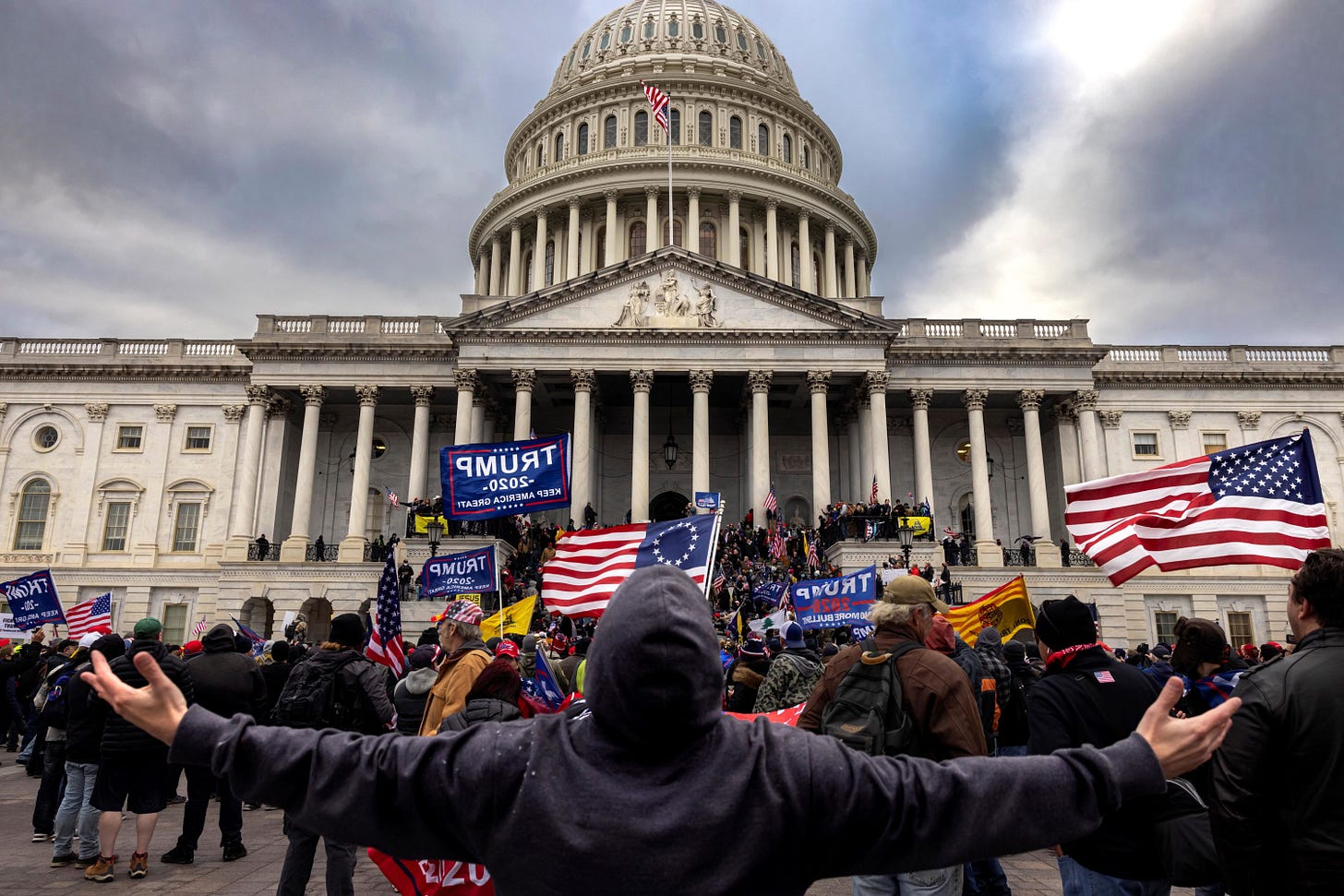What the Jan. 6 Commission Can’t Do
It can find facts and make recommendations, but it’s not going to change anyone’s mind.

On Wednesday, the House of Representatives passed a bill to form a commission to study the events of January 6. The bill now heads to the Senate, where its chances of passing appear less favorable. But even if the House version of the commission does pass, nobody should expect it to have the same kind of impact as previous commissions, like the 9/11 Commission. The January 6 commission’s work is important as a matter of fact-finding and for making recommendations to prevent another insurrection, but it won’t change anyone’s mind about anything.
Previous such commissions included prominent national figures of both parties. The 9/11 Commission was chaired by former New Jersey Governor Tom Kean and former Congressman Lee Hamilton, both nationally prominent politicians, and included other prominent retired politicians of both parties. The independent Ford-Carter Commission that studied the confusion caused by the 2000 elections was, as its name suggests, led by former Presidents Gerald Ford and Jimmy Carter. The commission George W. Bush created to investigate the intelligence failures in the lead-up to the Iraq War was co-chaired by Laurence Silberman—an appeals court judge, former deputy attorney general, and former ambassador—and former Senator Chuck Robb. The Warren Commission that investigated the assassination of President Kennedy was chaired by Chief Justice Earl Warren and included four sitting members of Congress and the former heads of the CIA and the World Bank.
The January 6 commission is also slated to include retired politicians and elder statesmen from both parties. But herein lies the problem. In the past, the elder statesmen and stateswomen who formed such commissions enjoyed the trust and confidence of the public, which legitimized the commissions’ findings. Americans generally trusted the commissioners to be men and women of integrity.
That is not the case today. Trust in government has declined since 9/11 while also becoming more partisan. The notion of “elder statesmen” has almost completely evaporated, as the Republican party rejects and disdains its former presidential nominees, and the Democratic party struggles to tame its populist wing. There are no experienced government leaders who would be seen as legitimate by both Republicans and Democrats because even a former politician with crossover appeal would represent the hated “old style” of politics.
This problem is at the heart of Republican leaders’ opposition to the bill. Finding the truth about January 6 matters—but to many Republicans, truth is no longer an objective good. It is, rather, subject to its relationship with Trump. The people in Trump’s base need to hear the truth the most, but they will reject it just as they either dismissed or misrepresented the Mueller report and Trump’s conduct during both of his impeachment trials. As for Senate Minority Leader Mitch McConnell and House Minority Leader Kevin McCarthy, any commission with a chance of uncovering the truth is a political liability.
If the Republicans were a responsible party that put the interests of the country above their own reelection, they would have no shortage of experienced and capable former officials to serve on a January 6 commission: Condoleezza Rice, Mitch Daniels, Jon Kyl, Will Hurd, and Jeb Bush are just a few.
Yeah, right.
The kind of people who bear the confidence of the Trump base, on the other hand, are figures like Rep. Jim Jordan and Sen. Josh Hawley—or maybe Chris Christie, Bill Barr, and Mike Pompeo—who are popular among the base precisely because they would do anything to be on the base’s good side, including sabotaging the efforts of the commission. (Recall Barr’s false declaration that the Mueller Report had exonerated Trump.) And even if they tell the truth, Trump’s base won’t believe them, anyway.
Americans need to know the truth about January 6, whatever that truth is. In the long run, facts matter, and to whatever degree improvements to Capitol security can be made to prevent another attack, they should be. Making recommendations for such reforms, to neutralize the threat of another sore loser during the lame-duck session should be a primary goal of any commission. But that doesn’t mean any commission with any composition could restore the national memory of January 6 that Republicans have spent months distorting.

